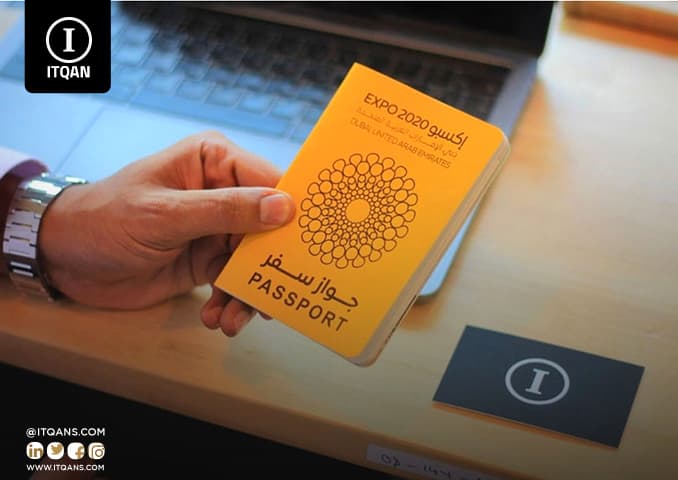Dubai is considered one of the most prominent investment destinations in the world, thanks to its strategic location, the development of its infrastructure, and the supportive business environment. For Saudis looking to expand their businesses or start new ventures, Dubai offers golden opportunities and broad prospects for growth and success. Establishing a company in Dubai allows Saudi investors to benefit from flexible economic policies, tax breaks, simple legal procedures, as well as access to a diverse global market.
In this article, we will guide you through the steps to establish a company in Dubai and the ways to establish a company in Dubai for Saudis, starting with choosing the appropriate type of company, through the necessary legal procedures, all the way to the financial requirements. Whether you are a small investor or the owner of a large company, you will find in this guide everything you need to start your investment journey in Dubai with confidence and reassurance.

Ways to establish a company in Dubai for Saudis
جدول المحتوى
ToggleChoose the type of companies in Dubai
When Saudis decide to establish a company in Dubai , they must first determine the type of company that best suits their business needs and goals. There are several types of companies that can be chosen, and each type has its own advantages and requirements. Here is an overview of the main types of companies available:
- Limited liability companies
Limited Liability Companies (LLC) are one of the most common types among Saudi businessmen in Dubai. This type of company is characterized by the fact that the partners’ liability is limited to their shares in the capital, which means that the partners do not bear the company’s debts with their personal funds. Establishing a limited liability company requires an Emirati partner who owns at least 51% of the company’s shares, while a Saudi or foreign partner can own the rest.
- Joint stock companies
Joint stock companies are another option for Saudis wishing to establish large companies in Dubai. These companies can be either public or private, and are distinguished by their ability to raise capital through the issuance of shares. Publicly owned companies can trade their shares on financial markets, allowing them to attract large investments. On the other hand, private joint-stock companies are limited to a certain number of shareholders and their shares cannot be traded publicly.
- Free zone companies
Free zone companies are another attractive option for Saudis due to the unique advantages they offer. Free zones allow investors full ownership of the company without the need for a local partner, in addition to multiple tax and customs exemptions. Dubai contains several free zones such as Jebel Ali, Dubai Internet City, and Dubai Healthcare City, each of which is designated for a specific type of business. Establishing a company in a free zone may be the ideal choice for those who plan to export and re-export goods, or provide various services.
By choosing the right type of company, Saudi investors can achieve success and sustainable growth in the dynamic Dubai market.
Legal procedures for establishing a company in Dubai for Saudis
Establishing a company in Dubai requires taking a number of important legal measures to ensure that the process runs properly and that the company complies with local laws. In this section, we will discuss the basic steps of registering a company, obtaining the necessary licenses, and completing the documentation and certification processes.
- company Registration
The first step in the legal procedures is to register the company with the competent authorities. The business owner must choose a suitable trade name that complies with naming laws in Dubai, then submit an application to register the trade name to the Department of Economic Development. After the name is approved, the company’s articles of incorporation and articles of association must be submitted, which must include all details regarding the partners, capital, and company activity. The competent authority will review and approve the documents, enabling the employer to obtain a registration certificate.
- Obtaining licenses
After registering the company, comes the step of obtaining the necessary licenses to practice commercial activity. The types of licenses required vary depending on the type of business activity the company intends to undertake. Among the basic licenses that companies may need are: a general commercial license, a professional license, and an industrial license. Applications for these licenses are submitted to the Department of Economic Development or the competent authority in the free zone if the company is established in a free zone. The business owner must submit all required documents, including the registration certificate and the commercial site lease.
- Documentation and certification
The final stage in the legal procedure concerns the process of notarization and legalization of documents. All legal documents must be certified by the relevant authorities, such as the Ministry of Justice and the Ministry of Foreign Affairs of the United Arab Emirates, as well as the Saudi Consulate if the documents are issued from Saudi Arabia. The employer must ensure the authenticity of all documents and submit them to the competent authorities to complete the certification process. After completing these steps, the company will have met all legal requirements and can start conducting its business legally.
With this, the company has passed the most important legal stages necessary for its establishment in Dubai, ensuring that it launches correctly and in compliance with local laws.
Financial requirements for establishing a company in Dubai for Saudis
Financial requirements are a vital part of the process of setting up a company in Dubai for Saudis . Compliance with the correct financial requirements ensures that the necessary financial support is provided to successfully start and operate the company. Here are some key aspects to consider:
- Required capital
The capital required is one of the most important factors to take into consideration when establishing a company. The amount of capital required varies based on the type of company and the region in which it is established. For example, limited liability companies need less capital compared to joint-stock companies. In addition, free zone companies can require specific amounts of capital, which vary depending on the free zone and the desired business specialization.
- Open bank account
The process of opening a company bank account is an essential step to ensuring that funds are managed effectively. New companies in Dubai can open a commercial bank account in one of the local or international banks operating in the emirate. Opening a bank account requires submitting a set of documents such as the articles of incorporation, registration certificate and relevant licenses. Saudis applying for this step must also ensure that the bank complies with the requirements of Islamic Sharia if they prefer to deal with an Islamic bank.
- Fees and costs
The fees and costs related to establishing a company in Dubai include several aspects, including registration, licensing and documentation fees. These costs vary based on the type of company and the region in which it is established. For example, free zone companies may benefit from certain exemptions or financial incentives that reduce overall costs. It is important for Saudis wishing to establish a company in Dubai to conduct a comprehensive financial feasibility study to estimate the actual costs and prepare the appropriate budget.
In conclusion, compliance with financial requirements is an integral part of the success of the company formation process in Dubai. Through good financial planning and efficient resource management, Saudis can achieve their business goals in this dynamic and prosperous environment.
In conclusion, establishing a company in Dubai for Saudis can be a strategic step to achieve great successes in a diverse and thriving global market. The city provides an advanced work environment and advanced infrastructure, in addition to flexible laws that encourage foreign investment. By choosing the appropriate type of company, whether it is a limited liability company, a joint stock company, or a free zone company, the Saudi investor can benefit from many available opportunities.
The legal procedures for registering a company and obtaining the necessary licenses is a crucial step that requires good planning and careful documentation to ensure compliance with all local laws and regulations. In addition, financial requirements such as determining the required capital, opening a bank account, and bearing the fees and costs associated with incorporation need to be carefully studied to ensure the financial success of the company.
Ultimately, setting up a company in Dubai offers ample opportunities to grow and prosper in a stimulating business environment. Proper planning and adherence to legal and financial procedures enhances the chances of success and makes Dubai an ideal destination for Saudi investors.
The most important frequently asked questions about establishing a company in Dubai for Saudis
What are the basic steps to establish a company in Dubai?
The basic steps include choosing the company type, defining the business activity, obtaining the appropriate license, opening a bank account, and completing the legal procedures.
Can Saudis establish a company in Dubai without a local partner?
Yes, Saudis can establish a company with 100% ownership in free zones, where a local partner is not required.
What are the documents required to establish a company in Dubai?
Documents include copies of passports, personal photographs, company articles of incorporation, incorporation application form, and office lease contract.
What are the tax advantages of establishing a company in Dubai?
Dubai provides tax exemptions for companies in free zones, and does not impose a tax on personal income.
Should Saudis employ UAE nationals in their company?
In some sectors there may be requirements to employ a certain percentage of UAE nationals, in accordance with government Emiratisation policies.
What challenges might Saudis face when establishing a company in Dubai?
Challenges include learning about local laws, upfront costs, finding the right location, and ensuring compliance with all legal requirements.

















